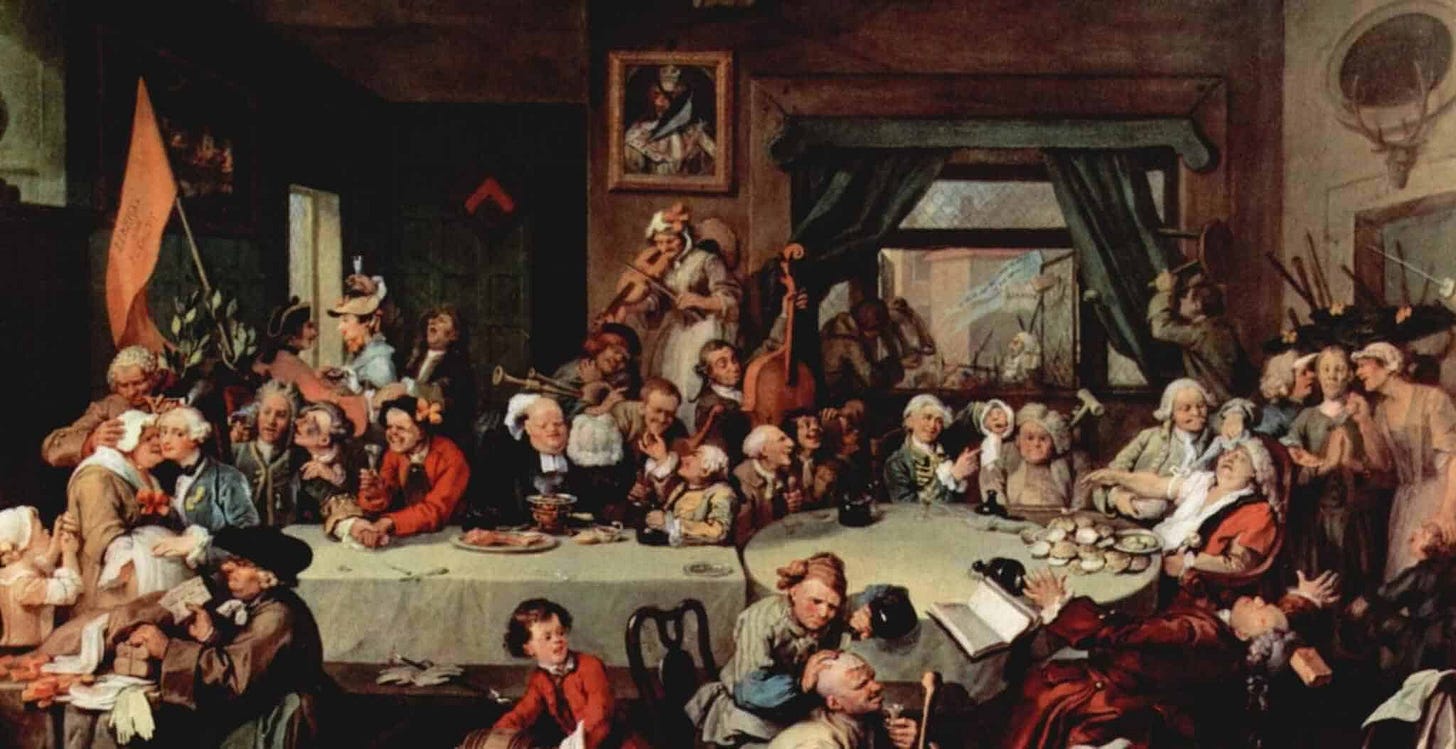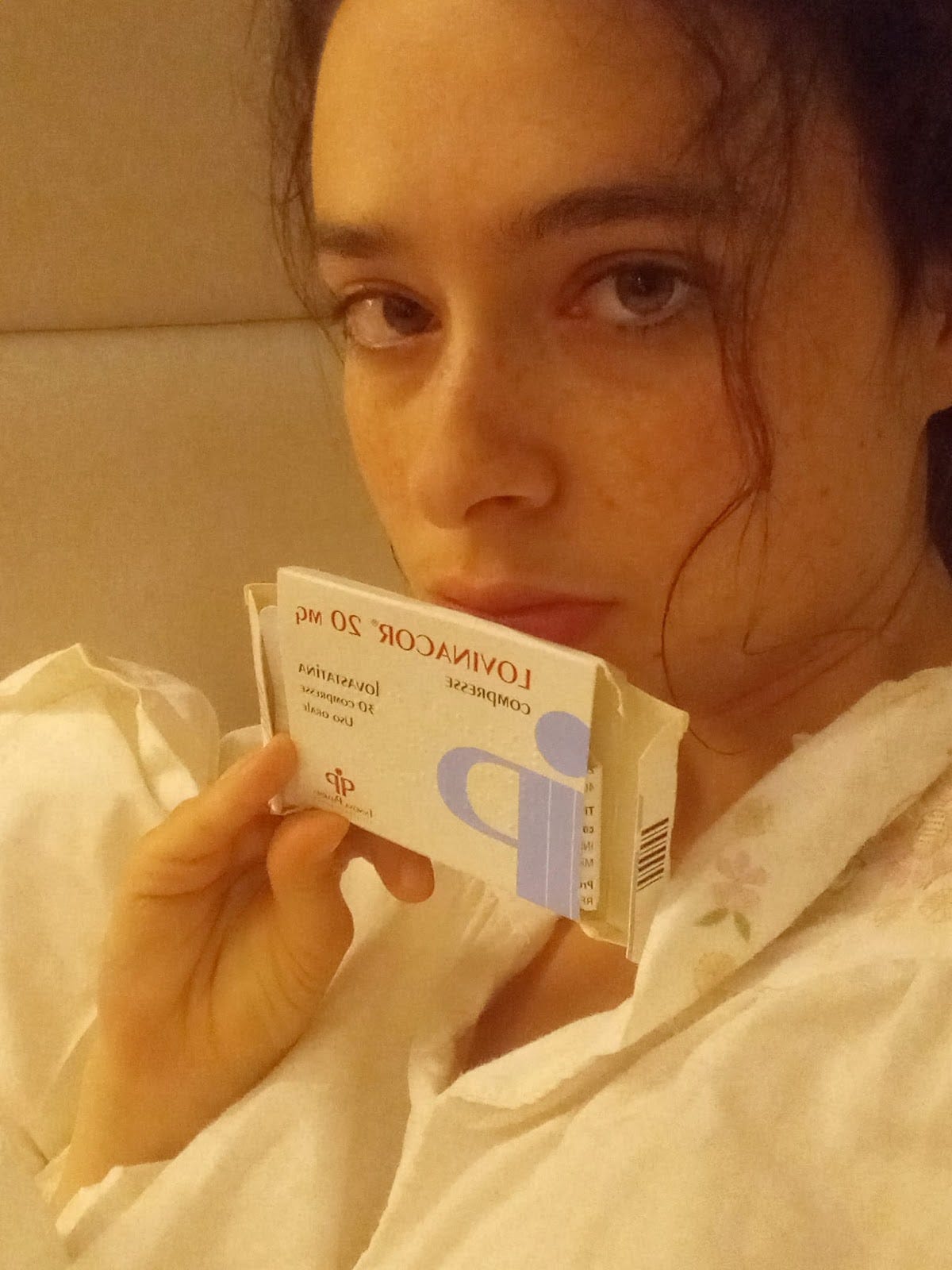Writing with high cholesterol
The good, the bad, but mostly, the ugly
I have high cholesterol. There is nothing particularly tragic about this fact, nor interesting, nor, certainly, poetic. It does not define me, nor could it, really, even if I wanted it to (there is no noun form of ‘having high cholesterol’, cholesterolite… cholesteran…). It is merely an attribute of myself, of my body, that, perhaps, should not come up too often in conversation.
Besides a relative lack of interest, all I can detect in others when confronted with the word ‘cholesterol’ (as in myself when the word is mentioned by my doctor) is slight disgust. Cholesterol is just a little bit ugly as a thought. It does not gather around itself the host of metaphors and imaginaries of a Sontag disease, nor the divine associations of maladies such as epilepsy, nor the tragic and narrative tones of a terrible accident, nor even the comedic and literary associations of historical diseases such as gout. I should not be complaining, of course, for my lack of serious illness.
But upon entering my new life as a high-cholesterol adult who must take medication probably for life (amongst the most-sold meds in the world, by the way), I became aware that I did not know how to orient myself vis-à-vis this new aspect of myself. Cholesterol is a late 20th-century phenomenon (that is when it was discovered and when it started being considered a problem) approached in a very 21st-century manner: our bodies and their contents as simply some of many variables in a lab, floating agglomerations of numbers that can be made just right with the tinkering of variably-sized white pills. Unsurprisingly, I have found no critical essay, literature, prose, or verse on having cholesterol; it comes up in no story and seems to be tied to not even a single anecdote; there is no famous cultural, political, or artistic figure that is associated with it; it is merely the product and producer of statistics of the type ‘blood total cholesterol levels have an exponential effect on cardiovascular and total mortality…’1.
I suppose I did find this lack of poetry around cholesterol a bit upsetting; thus I set off to explore it. I began my research after being prescribed my medication (statins! Such successful little pills). Cholesterol’s mysteriousness was in itself slightly mysterious. After all, high cholesterol is one of the most common medical issues in the developed world. In my family, my dad has always suffered (if that is indeed the correct term) from it, and thus it is a concept I have long been familiar with. And yet, when diagnosed (if this is the right word), I could not have told you one single thing about it besides that some of it is ‘good’ (HDL), and some of it is ‘bad’ (LDL), and that high cholesterol is very bad. When my doctor looked at my blood test results in surprise and without any hesitation handed me a prescription, I had not the faintest idea of the reasonings behind his attitude. I simply thanked him.
The truth behind cholesterol is technical, chemical, biological—logical. It is an integral substance to all animal cells. The body uses it to form cell membranes, help develop hormones, aid in digestion, and complete more such little molecular tasks. Thanks to cholesterol, our membranes achieve a flexibility that allows them to move more easily while still maintaining sufficient structural rigidity. Cholesterol can come from our diet, but it is mostly produced in-house, in our liver. If too much cholesterol is deposited in our arteries, it can form thick deposits (plaques) that eventually, through a fascinating chemical process that unfortunately I do not have the space to write about, may lead to blockages, and thus to cardiovascular risk. Several doctors have won Nobel Prizes for their work on cholesterol (e.g., Joseph L Goldstein), many more have dedicated their lives to it, and entire associations with many members seem to think of little else (the National Lipid Association). The thought of a life dedicated to the study of cholesterol—those card-holding members of the NLA—is slightly incomprehensible to me. As though dedication must take the passionate and mystical form of a vestal altar rather than the slow and steady pace of scientific discovery devoted to a microscopic liquid-y substance.
One thing about cholesterol that immediately jumped out to me, and that indeed places it quite far from the divine, is the centrality of its physicality. It is as if the language used to define it is wading in it. Cholesterol is described variably as a ‘waxy substance’ developing in ‘fatty deposits’, a ‘waxy, fatlike substance in the blood’, a ‘soft, fat-like substance found in the bloodstream’, etc. Waxy. Fat. Substance. ‘Substance’ ties it down to the material, ‘waxy’ and ‘fatty’ give it evocative power: they are words like ‘slimy’ and ‘ick’—while not quite onomatopoeic, they are some parallel in the realm of tactility—they sound not like what they sound like, but what they feel like.
Either way, it all seems disgusting, ugly. It should come as no surprise that cholesterol is not too far removed from bile and gallbladders; that it sometimes gives a yellowish-greenish hue to other substances; that it is prominent in obese individuals and those with grease-filled, fat-filled diets; that it creates fatty streaks and is a close relative of other fatty things inside us. All of this amounts to one visceral, icky impression. ‘Ew!’ Gross is the word that comes to mind, far removed from theory and from rhyme. Cholesterol overtakes us with its vague, disgusting materiality. Perhaps deeply sensorial words like thunk, meow, and yuck exist as they are precisely because it is somehow difficult for us to erect prose from their dominating physicality. It smothers us, claims even our language for its purposes. (Indeed, from the only poem I found on cholesterol, whose quality I will not pass judgement on at this time: ‘Into the valley of soluble fat I combat a sum of that / ill-to-mention dysfunction: my compunction to unction…’)—the tendency to verbally slip right into cholesterol’s greasiness.
And yet, despite this impression, another one of the features of cholesterol is precisely its relative invisibility. My pervasive disgust towards it may be built above all else on strings of associations. For in and of itself, cholesterol is so small and integral to the bodily system that it is very difficult to visualise, to find even microscopic images of. On Google Images, it looks more like a diagram than a leaking substance. Having high cholesterol, moreover, is asymptomatic. It is partly for this reason that its fame has come so late, in the era of microscopic technology. It can (and apparently often does) lead to mortality but, before then, the victim seems completely fine, ‘normal’.
So, on top of being somehow grossly physical, cholesterol is also one of the purest abstractions of our contemporary world: a molecule, infinitesimally small, existing at the atomic level. A circle connected to a line connected to a circle. The vocabulary is not physical here, but rather scientific: substrate, lipoprotein, macrophage, etc. These words are the inverse of the previous set: their meaning is so deeply ingrained in their structure, so seemingly self-evident and peer reviewed, that they seem like knowledge itself, though we may not know what they mean. They are black holes of meaning, sucking meaning towards themselves while contributing little to the harmony of the phrase or context in which they find themselves. Poetry may have a hard time finding its roots among them, too.
Ultimately, what am I rambling on about? There is nothing wrong with scientific vocabulary and it is not like seeing cholesterol in a haiku would make me feel any better (oh dear thick sisters / I worshipped, I knew you not / like cholesterol) … Perhaps I have to accept that excess of life—or is it the excess of science and technology—that seems to escape my desire and ability for narrative and for crafting a coherent self, even with that which is literally inside me, literally composing me. (I should also, perhaps, not fear fatty and membrane-related language so much, learn to throw it around, plant it within my sentences and self-image, reclaim the neglected facets of my medicalised body.)
I have high cholesterol and yet cholesterol is unlikely to shift from its grey and silent place in the scientific shadowland of our cultural associations. Do I want it to mean something more? But the meaning slides right off. It is like in the case of Foucault’s ‘infamous men’: those petty criminals chronicled in state (e.g., prison) annals, whose identities have been conserved for posterity and who have become subjects of discourses such as this one thanks only to their brief and unfortunate brush with state institutions and power, which in some way narrate and substantiate their lives like nothing else. Having high cholesterol is for the telling of our modern-day medical and bureaucratic institutions, not for me. It is their story, it makes sense in their books and registers. Indeed, physically and mentally, since realising I have high cholesterol, I feel completely fine, precisely as I have always felt, and precisely as any healthy person should feel. I follow the procedures my doctor prescribes for me and casually monitor my diet. I take a white statin pill every night so it can do its magic invisible work as I sleep. I take blood tests and compare the figures to the previous ones. If I seek inspiration, it is yet to come (or is it that perhaps I ought to look on ‘in perfect silence’2 instead?)
Alyssa Erspamer
Lewington S, Whitlock G, Clarke R, Sherliker P, Emberson J, Halsey J, et al. (December 2007). "Blood cholesterol and vascular mortality by age, sex, and blood pressure: a meta-analysis of individual data from 61 prospective studies with 55,000 vascular deaths". Lancet. 370 (9602): 1829–1839.
From ‘When I heard the learn’d astronomer’ by Walt Whitman.


